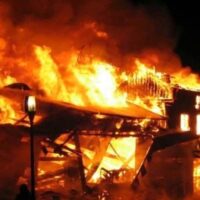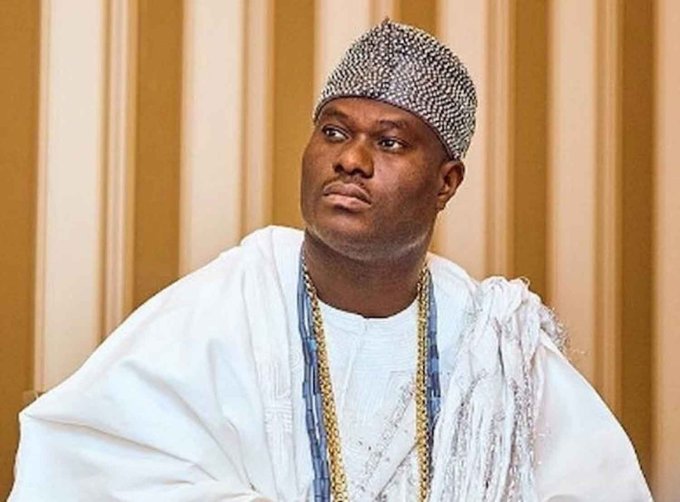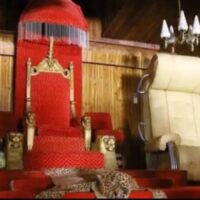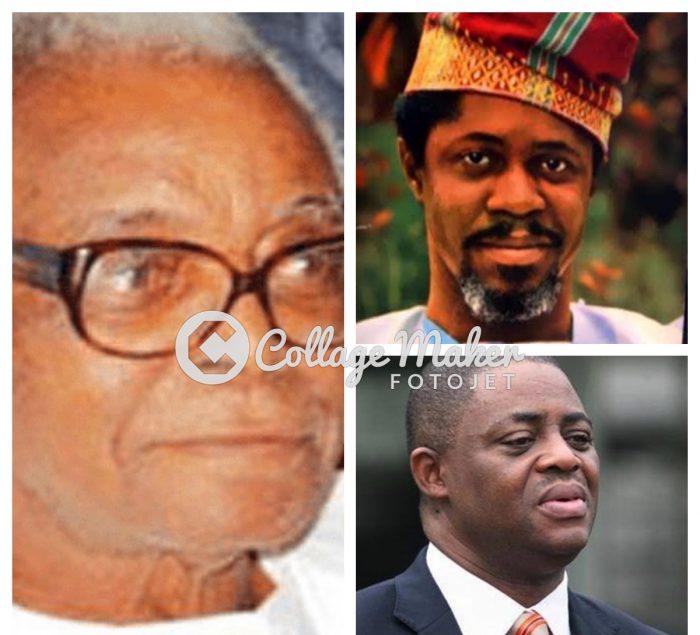Comrade Lekan Badmu is a Columnist With Oduduwa News And a Public Opinion Analyst.
The fact that Nigeria was left off- hook from the claws of colonial rule in October 1st, 1960 is incontestable. It is interesting to note that no contrary story has ever countered the ember date but what is still shrouded in confusion is the mover of the motion that set the agitation for self rule.
History is important. A nation that does not give priority to history is at the precipice of extinction. However, history cannot be re-written but could be distorted. Thus, the need to unravel the controversy trailing the identity of the parliamentarian that raised motion for independence. This is so important and inevitable in view of the academic relevance of the subject matter.
From the time immemorial, it has been stated that Chief Anthony Eromosele Enahoro moved the motion for Nigeria’s independence in 1953 at the floor of the Federal House of Assembly, Tafawa Balewa Square; popularly known as Race Course in Lagos State. Enahoro was a member of Action Group, AG. A political party under the leadership of late sage, Obafemi Awolowo.
Recently, I stumbled on a contrary account. The music is changing but the lyrics and rhythm are incoherent. The account was given by that vocal lawyer cum politician, Femi Fani-Kayode who claimed that his father; not Enahoro, moved the historic motion for independence. FFK could not be said to be loquacious at this time. Without being prejudicial, his account could not be ignored judging from the raw information at the disposal of FFK in respect of his vantage positions as the son of Chief Remilekun Fani Fakayode.
This issue has become a matter of supreme importance in our quest towards putting the record straight without necessarily misleading the unborn child. It would be foolhardy to beckon on our former colonial masters to write our history. That would amount to an absurdity and abberration.
According to FFK; “On August 2nd 1958 my father successfully moved the motion for Nigeria’s independence from British colonial rule. The truth is that almost 90 per cent of Nigerians have been brought up to believe that the motion for Nigeria’s independence was successfully moved by Chief Enahoro, a man that is undoubtedly one of our most revered nationalists and founding fathers.”
“Though, nothing can be taken away from Enahoro in terms of his monumental contributions in our quest for independence. I would argue that he kicked off the process for that struggle with his gallant efforts in 1953.”
An examination of the above statement shows that FFK was absolutely correct.
Meanwhile, like the police would admonish someone under arrest; ” you had better don’t say anything because whatever you utter would be used against you in the court”; as a lawyer FFK is, the facts he adduced to establish and substantiate his claim are substantial enough to give a fair judgement. FFK has covertly or overtly provided the answer to the lingering question. There is a self-admittance to the obvious fact of who moved the motion in reference to the year. By simple calendar, 1953 preceeds 1958 !
Dissecting the second argument which bothers on the word; “successfully”; this is inconsequential. It is rather a matter of semantics. The 1958 motion was at the instance of 1953 agitation. FFK has given judgement in his own case when he posited above that; ” though, nothing can be taken away from Enahoro in terms of his monumental contributions in our quest for independence. I would argue that he kicked off the process for that struggle with his gallant efforts in 1953.” This is a statement made under no duress.
The truth, without any ambiguity is that, in July 1958, the former deputy premier of western region, Chief Remi Fani Fakayode successfully moved the motion for Nigeria’s independence in the Federal House of Assembly in Lagos. He argued that independence should take place on 2 April 1960.
In 1959, there was a further motion that was moved in the Nigerian Parliament asking for a slight amendment to the Fani-Kayode motion of July, 1958. This new motion, which was moved by Sir Abubakar Tafawa Balewa, asked that the 2nd April, 1960 date for independence, which had already been accepted and approved by Parliament and which had been acquiesced to by the British colonial authorities should be shifted from the 2nd of April of that year to the 1st of October instead.
This motion of amendment was subsequently passed and approved by Parliament and it was acquiesced to by the British. That is how the date for Nigeria’s independence, 1 October 1960, was finally arrived at. Evidently, Enahoro’s motion preceeded the two from Fani and Balewa viz; 1953, 1958 and 1959.
In a plain language, Enahoro was the first to move the motion in 1953 but which was not approved then. Fani re-opened the motion and wanted April 1960. This was approved but Balewa moved for a shift of date from April to October. Logically, the motion could not be ascribed to Senior Fani because his projected date of April was eventually jettisoned. It would have been better if Balewa had laid claim because it was he that suggested October.
Candidly writing however, history has not been fair to Fani power. He has not been sufficiently celebrated in this country like other heroes; even from south-west. A significant percentage of the people are not aware that FFK’s father was Awolowo’s deputy.
The reason for this may not be unconnected with his defection from AG to NCNC. Politics of that era was filled with acrimony. Awo was a deity and woe betides any member who decamped into opposition party. It is also on record that senior Fani was the Deputy National Chairman of NPN. All these are inconsequential to the fanatical fans of the late sage as long as you jumped ship. No matter your good antecedents, you remain a villain in the comity of Awoist as much as as you derailed.
In conclusion, the first two paragraphs of the statement of the motion for independence by Chief Enahoro is hereby reproduced for archive.
“Mr. President, sir, I rise to move the motion standing in my name, “that this House accepts as a primary political objective the attainment of self-government for Nigeria in 1956.
Sir, this motion is an invitation to the Honourable Members of this House to associate the highest legislature of our land with the expressed desire of the peoples of this country, whose views we all represent, for political autonomy in 1956.”
For Comments:
lekanbadmuscolumn@gmail.com





